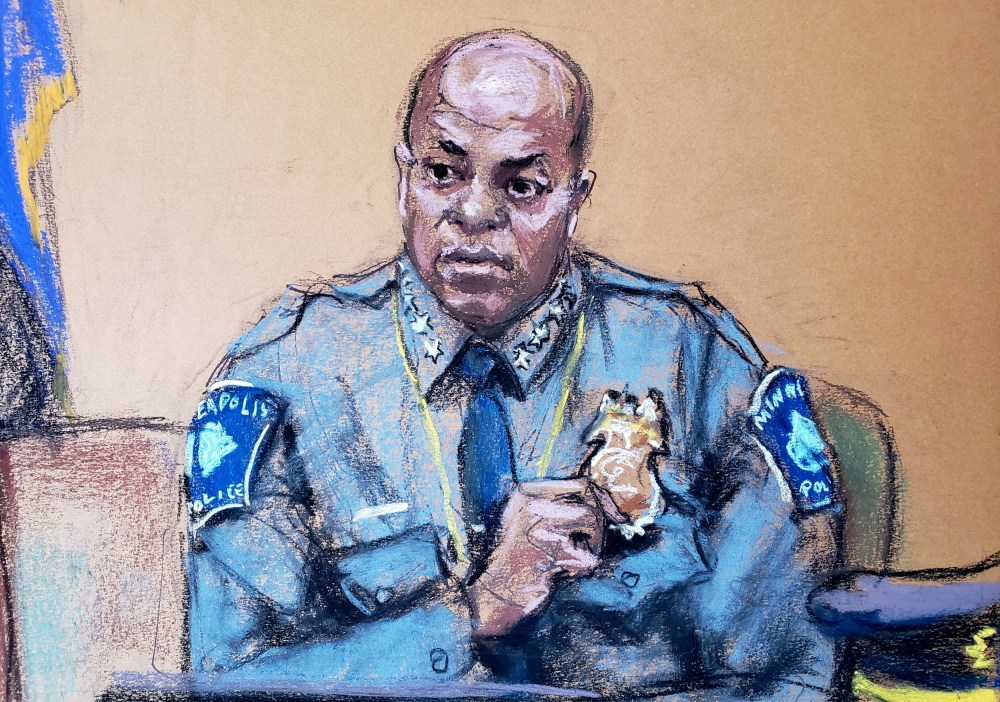The nation is currently fixated on the murder trial of former Minneapolis Police Officer Derek Chauvin. Charged with second-degree unintentional murder, third-degree murder and second-degree manslaughter in connection to the death of George Floyd, the unarmed 46-year-old Black man who died after Chauvin knelt on his neck for more than nine minutes, Chauvin could face decades behind bars.
the fact that we are even at this point, with Chauvin on trial, is sadly quite remarkable.
The fact that we have even reached this stage — where an officer is on trial for killing a Black civilian — is groundbreaking in so many ways in a society where too often, police officers aren’t held accountable when they take the life of unarmed Black and brown folks. Too often, families suffer from both an agonizing loss and a lack of justice.
This is one of the rare instances where an officer is, in fact, on trial. But what’s even more of a rarity is that we are witnessing other cops testify against their peer.

No matter the outcome of this trial, this in itself is a powerful indicator of a few things: By showing the world on national television that cops are willing to call out other cops when they see misconduct, it shows that things can, in fact, change. It also reinforces the necessity of seeing progress inside police department culture itself — not solely by forces of external pressure, even if it’s a result of it.
As a former New Jersey sergeant, DeLacy Davis, told NBC News, a senior police official choosing to call out an officer instead of holding allegiance to the force could be the tipping point in this country’s long battle with police brutality that we so desperately need.
The challenge, of course, is to translate this accountability beyond the case of Floyd so that we don’t keep finding ourselves here, fighting for justice in the death of another unarmed Black man who never should have died at the hands of an institution sworn to protect and serve.
Holding bad officers accountable is the only way that we begin to reform policing.
About 1,000 fatal shootings by police are reported each year in this country, and about 4 percent of those victims are unarmed. Around 1 percent of officers involved are arrested. According to criminal justice experts at Bowling Green State University, only 139 officers have been arrested and charged with murder or manslaughter since 2005. And out of that small number, even fewer face disciplinary repercussions. So again, the fact that we are even at this point, with Chauvin on trial, is sadly quite remarkable.
The most striking moment for me was watching Minneapolis Police Chief Medaria Arradondo take the stand and unequivocally say, “This was murder — it wasn’t a lack of training,” testifying that Chauvin’s actions violated Minneapolis police policy.

“The officers knew what was happening — one intentionally caused it, and the others failed to prevent it,” Arradondo said during last week’s testimony. Arradondo, who fired Chauvin and the other three officers who were at the scene of Floyd’s death, also reminded the courtroom and everyone watching the world over that police officers have a duty to care even when arresting someone.












